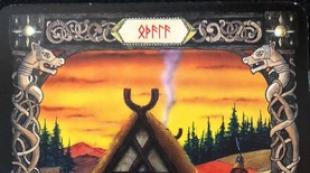Crowd crowd who is your ruler and master. Psychology of the crowd
Crowd - an unstructured accumulation of people, devoid of a clearly perceived commonality of goals, but mutually related by similarity emotional state and general focus.
V. G. Belinsky wrote: “A crowd is a collection of people who live according to legend and argue according to authority.”
A very figurative definition of the crowd was given by G. Lebon: "The crowd is like leaves raised by a hurricane and carried in different directions, and then falling to the ground."
Famous researchers of crowd psychology - Gustave Lebon, Wilfred Trotter, Gabriel Tarde, Sigmund Freud, Elias Canetti.
Crowd classification
By degree of organization:
spontaneous crowd. Arises spontaneously, not organized by any persons. This type includes such crowds as a crowd of people in the subway or in the foyer of a cinema. Although they have gathered for a specific occasion, the crowd as such has no instigators.
driven crowd- a crowd organized by leaders. Such a crowd has instigators. An interesting type of driven crowd is a flash mob - a crowd of people suddenly gathering in one place and just as suddenly disappearing. Flash mobs are usually organized over the Internet.
Organized crowd. A crowd with a pronounced organization, orderliness. The concept was introduced by Gustave Le Bon, who considered formations such as a company of soldiers and even a meeting of parliament to be a kind of crowd. Lebon also used the term soulful crowd, emphasizing that the crowd has its own soul. Many researchers do not agree with such an extended interpretation and believe that only an unorganized mass of people can be called a crowd.
By the nature of people's behavior:
Aggressive crowd- the human mass, committing destructive actions.
panic crowd- a crowd fleeing from someone (something).
Acquisitive crowd- a crowd fighting for values.
rebel mob- a crowd that opposes the authorities.
occasional crowd- a gathering of curious people (onlookers), for example, a crowd gathered on the occasion of a car accident.
Conventional crowd- a crowd gathered for a predetermined occasion (festival, carnival, etc.)
expressive crowd- a crowd expressing general emotions (protest, jubilation, etc.).
Ecstatic crowd- the crowd embraced by ecstasy.
acting crowd- a crowd that performs physical actions.
crowd dynamics
If the crowd or parts of it move in any way, then the following division can be given:
Sparse crowd- each individual constituting it can move relatively freely in any chosen direction.
petrified crowd- the movement of the individual is possible only in a direction common with the whole crowd, while attempts to deviate from it meet with ever-increasing resistance.
Monolithic crowd- any individual independent movement is impossible, the pressure in the crowd exceeds the capabilities of the human body, everyone is concerned only with their own survival, crush.
Psychological characteristics of an individual in a crowd
In a crowd, an individual acquires a number of specific psychological characteristics that may be completely uncharacteristic of him if he is in an isolated state. These features have the most direct influence on his behavior in the crowd. A person in a crowd is characterized by the following features. Anonymity. An important feature of the self-perception of an individual in a crowd is the feeling of one's own anonymity. Lost in the "faceless mass", acting "like everyone else", a person ceases to be responsible for his own actions.
instinctiveness. In the crowd, the individual gives himself over to such instincts that he never, being in other situations, gives free rein. unconsciousness. The conscious personality disappears in the crowd, dissolves. The predominance of the unconscious personality, the same direction of feelings and ideas, determined by suggestion, and the desire to immediately turn the suggested ideas into action is characteristic of an individual in a crowd. The state of unity (association). In the crowd, the individual feels the power of human association, which affects him with its presence. The impact of this force is expressed either in the support and strengthening, or in the containment and suppression of individual human behavior. Hypnotic trance state. The individual, having spent some time among the active crowd, falls into a state that resembles the state of a hypnotized subject.
Feeling of irresistible power. An individual in a crowd acquires the consciousness of an irresistible force, thanks to sheer numbers.
infectivity. In a crowd, every action is contagious to such an extent that the individual very easily sacrifices his personal interests to the interest of the crowd. Amorphous. In the crowd, the individual features of people are completely erased, their originality and personal uniqueness disappear. Irresponsibility. In a crowd, a person completely loses a sense of responsibility, which is almost always a deterrent for an individual. Social degradation. Becoming a particle of the crowd, a person, as it were, descends several steps lower in his development.
The possibilities of crowd control differ significantly depending on who aspires to be the leader in it - a demagogue or an intellectual. As they say in the East, he who wants to control the crowd tries to ride the tiger. However, managing individuals is much more difficult than managing a crowd.
Crowd control mechanisms
The mechanisms of mass behavior can be used by a politician with any views and any moral level. In such cases, the crowd becomes a plaything in the hands of the leader. Usually, people who want to lead the crowd intuitively know how to influence it. They know that in order to convince the crowd, you must first understand what feelings inspire it, pretend to share them, and then conjure up in the imagination of the crowd images that attract it. The crowd should always be presented with any ideas in solid images, without indicating their origin. A speaker who wants to captivate a crowd must abuse strong language. To exaggerate, to assert, to repeat, and never to try to prove anything by reasoning - these are the ways of argumentation for the crowd. The statement only affects the crowd when it is repeated many times in the same expressions: in this case, the idea is embedded in the minds so firmly that in the end it is perceived as a proven truth, and then crashes into the deepest regions of the unconscious. This technique is also quite successfully used by the leaders or leaders of the crowd. A theoretical analysis of the mechanisms of crowd formation can, to some extent, help administrative bodies to control its behavior. They are faced with a twofold task: 1) to awaken the awareness of the crowd of individuals of their actions, to return to them the lost sense of self-control and responsibility for their behavior; 2) prevent the formation of a crowd or disband an already formed crowd. The following can be considered effective means: - reorientation of the attention of individuals who make up the crowd. As soon as the attention of people in the crowd is distributed among several objects, individual groups, and the crowd, just united by the "image of the enemy" or readiness for joint action, immediately disintegrates. The features of the personality structure of individuals suppressed by the influence of the crowd come to life - each person individually begins to regulate his behavior. The crowd ceases to be active, functioning and gradually dissipates; - an announcement over the loudspeaker that the hidden cameras are filming the crowd members; - an appeal to the crowd participants with the name of specific surnames, names, patronymics, the most common in the area; - application of measures to capture and isolate the leaders of the crowd. If, by some accident, the leader disappears and is not immediately replaced by another, the crowd again becomes a mere gathering without any connection or stability. In this case, it is easier to carry out crowd dispersal measures.
In fact, it is very difficult to speak with the voice of reason with the crowd. She only accepts orders and promises.
Often the behavior of the crowd is determined by the presence or absence of a leader in it. The leader in the crowd can appear as a result of a spontaneous choice, and often - in the order of self-appointment. The self-proclaimed leader usually adapts to the moods and feelings of the people of the crowd and can relatively easily induce its members to a certain type of behavior.
Any collection of individuals instinctively submits to the authority of the leader. The hero worshiped by the crowd is truly a god for it. In the soul of the crowd, it is not the desire for freedom that prevails, but the need for submission. The crowd is so eager to obey that it instinctively submits to the one who declares himself to be its master.
People in the crowd lose their will and instinctively turn to the one who retained it. Always ready to rise up against a weak government, the crowd grovels and bows before a strong government. Left to their own devices, the mob soon tire of their own disturbances and instinctively yearn for slavery.
The crowd is as intolerant as it is gullible with respect to authority. She respects strength and is little affected by kindness, which for her means only a kind of weakness. She demands strength and even violence from the hero, she wants to be possessed, she is suppressed. She yearns to fear her master. The power of the leaders is very despotic, but it is precisely this despotism that makes the crowd obey.
In a crowd of people, the leader is often only the leader, but, nevertheless, his role is significant. His will is the core around which opinions crystallize and unite. The role of leaders is mainly to create faith, no matter what. This explains their great influence on the crowd.
Most often, the leaders are mentally unbalanced people, half-mad, on the verge of insanity. No matter how absurd the idea they proclaim and defend, and the goal towards which they strive, their convictions cannot be shaken by any arguments of reason. There is another quality that usually distinguishes the leaders of the crowd: they do not belong to the number of thinkers - they are people of action.
The leader class is divided into two categories:
People are energetic, with a strong, but appearing in them only for a short time will;
People who have a strong and at the same time steadfast will (are much less common).
One of the important factors that determine the leader's influence on the crowd is his charm. Charm is a kind of dominance of some idea or personality over the mind of an individual. It can be made up of opposite feelings, such as admiration and fear, and can be of two types: acquired and personal. Personal charm is different from artificial or acquired and does not depend on either title or power. It is based on personal superiority, on military glory, on religious fear, but not only on this. There are many different factors involved in the nature of charm, but one of the most important has always been and remains success.
Crowd management has a dual nature, because the crowd is almost always the object of control of two forces: on the one hand, it is led by leaders, leaders; on the other hand, the forces of protection of public order, power administrative structures are engaged in the crowd.
The possibilities of crowd control differ significantly depending on who aspires to be the leader in it - a demagogue or an intellectual. As they say in the East, he who wants to control the crowd tries to ride the tiger. However, managing individuals is much more difficult than managing a crowd.
The mechanisms of mass behavior can be used by a politician with any views and any moral level. In such cases, the crowd becomes a plaything in the hands of the leader. Usually, people who want to lead the crowd intuitively know how to influence it. They know that in order to convince the crowd, you must first understand what feelings inspire it, pretend to share them, and then conjure up in the imagination of the crowd images that attract it. The crowd should always be presented with any ideas in solid images, without indicating their origin.
A speaker who wants to captivate a crowd must abuse strong language. To exaggerate, to assert, to repeat, and never to try to prove anything by reasoning - these are the ways of argumentation for the crowd.
The statement only affects the crowd when it is repeated many times in the same expressions: in this case, the idea is embedded in the minds so firmly that in the end it is perceived as a proven truth, and then crashes into the deepest regions of the unconscious. This technique is also quite successfully used by the leaders or leaders of the crowd.
A theoretical analysis of the mechanisms of crowd formation can, to some extent, help administrative bodies to control its behavior. They face a twofold task:
1) to awaken awareness by individuals of the crowd of their actions, to return to them the lost sense of self-control and responsibility for their behavior;
2) prevent the formation of a crowd or disband an already formed crowd.
Reorienting the attention of individuals who make up the crowd. As soon as the attention of the people in the crowd is divided among several objects, separate groups immediately form, and the crowd, just united by the “image of the enemy” or readiness for joint action, immediately disintegrates. The features of the personality structure of individuals suppressed by the influence of the crowd come to life - each person individually begins to regulate his behavior. The crowd ceases to be active, functioning and gradually dissipates;
Announcement over the loudspeaker that hidden cameras are filming crowd members;
Appeal to the crowd members with the name of specific surnames, names, patronymics, the most common in the area;
Application of measures to capture and isolate the leaders of the crowd. If, by some accident, the leader disappears and is not immediately replaced by another, the crowd again becomes a mere gathering without any connection or stability. In this case, it is easier to carry out crowd dispersal measures.
In fact, it is very difficult to speak with the voice of reason with the crowd. She only accepts orders and promises.
Crowd
The crowd is chaotic, although not without some organization. The organizing factor can be a common object of attention, a tradition, an event. Crowd members are often in a similar emotional state. The crowd is described by a number of parameters and characteristics, such as the number of people gathered, the direction and speed of movement, the psychological state, and others. The crowd is the subject of research in social psychology, which in particular introduces the classification of crowds according to a number of features. In some cases, the crowd can be a danger to others (for example, rioters) and to themselves (in case of panic). Crowds play a significant role in the story.
Studying the crowd
History
Such phenomena as riots, uprisings, revolutions, migration of peoples, wars and other phenomena associated with the participation of a large number of people are being studied.
Sociology
The main task is to predict the behavior of the crowd. This does not take into account the differences between individual members of the crowd, the phenomena are considered as average.
Psychology
The goal is to explain the mechanisms that bring a person into a state where a person is influenced by the crowd.
famous crowds
- Crush on Trubnaya Square during the funeral of Joseph Stalin
see also
Links
Literature
- Koryavtsev P. M. Introduction to the issues of cold dynamics. St. Petersburg: 2004-2006.
- Kovelman A. B. The birth of the crowd: from the Old to the New Testament // Odysseus. Man in history. 1993. The image of the "other" in culture. M., 1994, p. 123-137
Wikimedia Foundation. 2010 .
Synonyms:See what "Crowd" is in other dictionaries:
crowd- an accumulation of people who are deprived of a clearly perceived commonality of goals and organization, but are interconnected by the similarity of their emotional state and a common center of attention. The main mechanisms for the formation of T. and the development of its specific qualities are considered ... ... Great Psychological Encyclopedia
Exist., f., use. very often Morphology: (no) what? crowds, why? crowd, (see) what? crowd what? crowd, about what? about the crowd; pl. what? crowds, (no) what? crowds, why? crowds, (see) what? crowds, what? crowds about what? about crowds 1. A crowd is a large ... Dictionary Dmitrieva
When a hundred people stand next to each other, everyone loses their mind and gets some other one. Friedrich Nietzsche The morals of the people in times of trouble are often bad, but the morality of the crowd is strict, even when this crowd has all the vices. Talleyrand Face… … Consolidated encyclopedia of aphorisms
Assemblage, gathering, horde, gathering, mob, gang, people; people, common people, mob, mass, plebs, street. The actor is entirely dependent on the mass that is called in prose, and even in poetry. Gray crowd. The street is hard to climb in the mental sense. ... ... Synonym dictionary
Crowd, Ukrainian cheer up, blr. crowd, other Russian tulpa, art. glory. tlpa χορός (Supr.), Bolg. tulpa, Czech. tlupa crowd, group, slvts. tlupa, Czech here. tlum crowd, Pol. tɫum - the same. Praslav. *tъlra or *tlra is related to lit. talpa… … Etymological dictionary Russian language by Max Fasmer
Using the read text, complete ONLY ONE of the tasks on a separate sheet: 9.1, 9.2 or 9.3. Before writing an essay, write down the number of the selected task: 9.1, 9.2 or 9.3.
9.1 Write an essay-reasoning, revealing the meaning of the statement of the famous linguist Viktor Vladimirovich Vinogradov: "All means of language are expressive, you just need to skillfully use them." Justify your answer by giving two examples from the text you read. When giving examples, indicate the numbers of the required sentences or use citations. You can write a work in a scientific or journalistic style, revealing the topic on linguistic material. You can start the essay with the words of V.V. Vinogradov.
A work written without relying on the text read (not on this text) is not evaluated. If the essay is a paraphrase or a complete rewrite of the source text without any comments, then such work is evaluated by zero points. Write an essay carefully, legible handwriting.
9.2 Write an essay-reasoning. Explain how you understand the meaning of the phrase from the text: “In the crowd, they either don’t notice anyone, or everyone goes somewhere in a herd ...” Give two arguments in your essay from the read text that confirm your reasoning.
When giving examples, indicate the numbers of the required sentences or use citations.
The essay must be at least 70 words. A work written without relying on the text read (not on this text) is not evaluated. If the essay is a paraphrase or a complete rewrite of the source text without any comments, then such work is evaluated by zero points. Write an essay carefully, legible handwriting.
9.3 How do you understand the meaning of the word CROWD? Formulate and comment on your definition. Write an essay-reasoning on the topic: “What is a crowd”, taking the definition you gave as a thesis.
Arguing your thesis, give 2 examples-arguments that confirm your reasoning: give one example-argument from the text you read, and the second from your life experience.
The essay must be at least 70 words.
If the essay is a paraphrase or a complete rewrite of the source text without any comments, then such work is evaluated by zero points.
Write an essay carefully, legible handwriting.
(1) After the incident with teenagers who almost took away an invaluable camera from young cameramen, Olya said ruefully:
- (2) A crowd of villains ... (3) And you can’t hide from them anywhere - they are everywhere.
(4) Nilka, disturbed by something, said quietly and irreconcilably:
- (5) You can’t hide forever, but in our city you don’t need a crowd.
- (6) Where can you go, since she is, - muttered Boris.
- (7) I’m not talking about the city in general, but about which it’s completely ours. (8) The one that we ... are doing ... - Nilka meant that fabulous city that they tried to create in their film.
(9) But on this Nilka did not end the conversation about the crowd. (10) Apparently, something caught him, opened up an old wound. (11) He spoke with a painful note, as if touching a bad tooth with his tongue:
- (12) In the crowd, they either don’t notice anyone, or everyone goes somewhere in a herd ... (13) Dad says that this is a crowd syndrome; He told me this after one incident ...
- (14) What? Fedya asked. (15) For some reason, I felt sorry for Nilka.
- (16) It's a shame to remember ...
- (17) Well, Neil, don’t remember then, - Olya said accommodatingly.
- (18) No, I'll tell you. (19) Because ... it will become easier for me ... (20) It was when I was still living in an old house, which is on Turgenev Street ...
(21) And while they were wandering like this, depressed, Nilka told about what happened two years ago.
(22) Next to their five-story building stretched the old quarter, and there, in a rickety house, an old man lived. (23) His relatives either died or dispersed, so he alone managed as best he could. (24) He lived on a pension, he didn’t dig up the garden: you see, there was no strength and desire. (25) But one day - whether it was a memory of childhood, or just an eccentricity - he began to build a toy city among the abandoned beds. (26) From clay, from plaster, from shards and glass fragments. (27) He worked every day: he riveted patterned lattices from wire, sculpted and dried bricks in the sun, built houses and fortress walls from them ...
(28) Apparently, he, this old man, was talented and understood something in architecture. (29) The city - with bizarre buildings, with a knight's castle in the middle, with bridges across a ravine - grew up in an abandoned garden, like a small miracle. (30) At first, people laughed, then they began to stand at the low hedge for a long time, they looked already seriously, admiring this man-made beauty,
there were also helpers from the guys. (31) They laid out the sparkling pavement with tin bottle caps, collected colored glass for mosaics, cut pieces for tiles from red plastic ...
(32) And he didn’t know Nilka, he didn’t understand where the “conspiracy” came from among the local boys. (33) Including those who used to help the old man during the day. (34) And it is completely incomprehensible why Nilka ended up in this conspiracy.
- (35) They came to me at dusk, called. (36) They say, "a covert operation" to avenge someone. (37) They say that this old man offended one of the guys, he didn’t let him into the yard ... (38) Everyone gathered, secretly, like scouts. (39) Interesting ... (40) They took the lanterns from somewhere ... (41) They crept up to the garden, turned on the lanterns - and let's go around the city with stones like bombs ...
(42) They are in a hurry, throwing, and I also started, as if something had happened to me, and then one tower fell from my stone. (43) You know, as if I'm on the head myself! (44) And then my eyes seemed to open, as if I were screaming: “(45) What are you doing, you bastards!” (46) Roared - and home ... (47) Dad jumped out, and there was no one there. (48) And half of the city is gone ... (49) Then dad kept asking me: “(50) Well, why did you go? (51) Why did you throw it? (52) You loved this city so much ... ”(53) And I just roar, because I don’t know myself. (54) That's when he talked about the crowd syndrome ...
- (55) And then the guys didn’t beat you? Fedya asked hesitantly. - (56) For giving out.
- (57) Nope ... (58) It would be better if they beat. (59) Otherwise, I couldn’t walk past that garden. (60) Past the ruins ... (61) Because as a traitor ...
- (62) You were small, - Olya tried to console him.
- (63) Well, yes, small. (64) Seven and a half!..
- (65) Didn’t the old man restore the city? Boris asked.
- (66) He was fixing something. (67) But somehow already reluctantly. (68) And that tower that I ... she remained ... (69) Then we left, and the old man, they say, soon died ... (70) Maybe because of this ... (71) And I'm still ashamed I burn that I was in this crowd of boys destroying a wonderful city, that I behaved like them ...
According to V.P. Krapivin*)
* Vladislav Petrovich Krapivin (born in 1938) - Soviet and Russian children's writer, author of books about children and for children. Books by Vladislav Krapivin were repeatedly reprinted in Poland, Czechoslovakia, Bulgaria, Germany, Japan, Hungary, translated into English, Spanish, Persian and other languages.
Which answer option contains the information needed to substantiate the answer to the question: “Why did Neil decide to tell the guys the story of how he and the boys smashed the old man’s toy city?”
2) In the depths of his soul, Nilka was proud of his act, it seemed to him a manifestation of courage.
3) Neal told about his ugly act because he needed to ease his conscience.
4) Nilka wanted the city that they are now creating with the guys to be as beautiful as the old man's town.
Explanation.
The third answer option contains the information necessary to substantiate the answer to the question: “Why did Neil decide to tell the guys the story of how he and the boys broke the old man’s toy city?” In sentences (18) No, I will say. (19) Because ... it will become easier for me ... we get the necessary information.
Answer: 3.
Answer: 3
Explanation.
15.1 The perception of others depends on how a person speaks: what impression he will make, how his words will be perceived, whether he will achieve the pursued goals. One of the means of attractiveness of the interlocutor is the expressiveness of his speech, which is impossible without mastering the norms of speech culture.
In the text of Vladislav Krapivin there are dialogues by which you can see how skillfully their authors are able to use the word to convey what they would like to say. For example, in sentence 12 (In the crowd, they either don’t notice anyone, or everyone is a rod somewhere in a herd ...) The Nilka use the jargon “rod”, which turns out to be very appropriate in defining the actions of the crowd: the crowd is an element, an unpredictable, destructive force.
When Nilka's speech is agitated, his sentences are short, with ellipsis at the end of such sentences. The ellipsis is used as a sign of reticence, reflections that remain behind the text. An example is sentences 57, 60, 61.
Thus, the statements of the outstanding linguist V.V. Vinogradova: "All means of language are expressive, you just need to skillfully use them."
15.2 For the hero of the story, Vladislav Krapivin, memories of a shameful act committed by him under the influence of the crowd remain very painful. The crowd is an element, an unpredictable, destructive force. This is what the phrase is about: “In the crowd, they either don’t notice anyone, or they all go somewhere in a herd ...”
It happens that in life we do things for which we are then ashamed all our lives. It is about such an act that the hero of the text by V. Krapivina recalls. Years later, Nilka could not forget the shameful cowardice when he succumbed to the crowd syndrome. He doesn’t even remember why he began to smash the city: “They are in a hurry, throwing, and I also started, as if something had happened to me, and then one tower fell from my stone” (sentence 42).
When the boy came to his senses, he challenged the crowd: “And then my eyes seemed to open, I screamed: “What are you doing, you bastards!” Roared - and home ... ”(sentences 44-46). Of course, repentance came, but it was too late: the fabulous city was destroyed.
The story told by the hero is very topical. We encounter such conciliation in the crowd very often. It is very difficult to resist the decision of the crowd and is subject only to a strong person.
15.3 The theme of the relationship between the individual and the crowd is a traditional theme for Russian literature. What do we mean by the word "crowd"? In my opinion, the crowd is a terrible word - it immediately appears as a chaotic group of people, obsessed with some idea, not thinking much about the meaning of this idea, not capable of analysis, destroying, sowing evil in its path.
This is exactly how the crowd appears in an excerpt from the work of Vladislav Krapivin. The frantic flock of boys, who carried out a conspiracy against the old man, destroyed not only the city he built, destroyed the meaning of his life, destroyed the soul of a boy who could not resist the crowd and the destructive principle in himself.
The story told by the hero is very topical. We encounter such conciliation in the crowd very often. It is very difficult to resist the decision of the crowd and is subject only to a strong person. From your own weakness in the company of teenagers, you can become a drug addict, an alcoholic, a criminal. This happens because a person does not have the strength to say “no”, at this moment only one thought drives him: to be like everyone else, not to stand out, not to lose the support of others. But who is worse off? I would like to appeal to my peers: to have your own opinion is right, good and cool; if your opinion is despised by others, think about whether you are with those people.
Relevance: Corresponds to the demo version of the current year
What is a crowd? What effect does it have on a person? It is this problem that is raised in the text of VN Kazakov.
In this text, the author notes that "the man of the crowd is no longer a man." V.N. Kazakov emphasizes that, having started its movement, the crowd flies in a terrible black cloud, and the rivers turn red from the innocent blood of innocent people.
There are examples in works from Russian literature that show the power of the crowd over a person. Grigory Pechorin, the main character of M.Yu. Lermontov's novel "A Hero of Our Time", tried to please the "crowd" from birth. Gregory was modest - he was accused of slyness, and he became secretive; he was ready to love the world - no one understood him, and Pechorin learned to hate.
And in the work of Boris Vasilyev "Satisfy my sorrows" describes the destructive property of the crowd. The main character of this novel is the girl Nadia, who wanted to become a journalist. crush, in which the main thing was not to fall, because the fall meant death.
I believe that V.N. Kazakov is absolutely right. Even in our time, a person cannot always resist the crowd. Examples from the literature prove the unfavorable influence of the crowd on a person. A crowd is a collection of people who obey circumstances and cannot resist other people. But a person must remain a "person" who does not imitate the animal herd.
Updated: 2017-04-12
Attention!
Thank you for your attention.
If you notice an error or typo, highlight the text and press Ctrl+Enter.
By doing so, you will invaluable benefit project and other readers.









